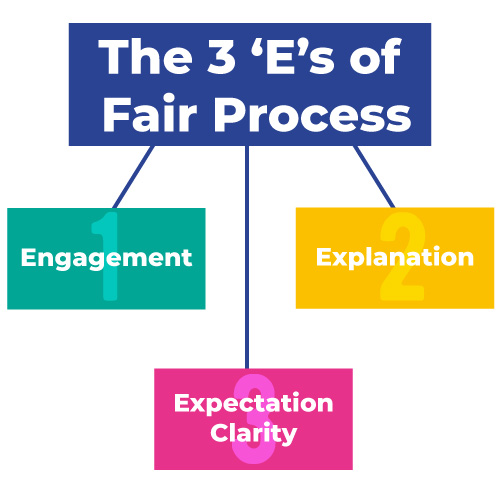You may have heard statements like these from colleagues and students.
“That’s not fair!”
“Who decided that?”
“Nobody asked me!”
Even if decision makers’ intentions are good, the way decisions are made can lead to mistrust and divisive conflict.
In 2004, Ted Wachtel said,
“Individuals are most likely to trust and cooperate freely with systems – whether they themselves win or lose by those systems – when fair process is observed.”
Ted Wachtel, Former President of the International Institute of Restorative Practices
Three Principles of Fair Process
| Engagement | Explanation | Expectation Clarity |
| Everyone affected by the decision is given opportunity to provide input, and discuss possible courses of action. | After leader makes the decision, the decision, process, and reasoning behind the decision is made clear to stakeholders. | Everyone involved understands implications of the decision, specific explanations, and consequences of not meeting expectations. |

